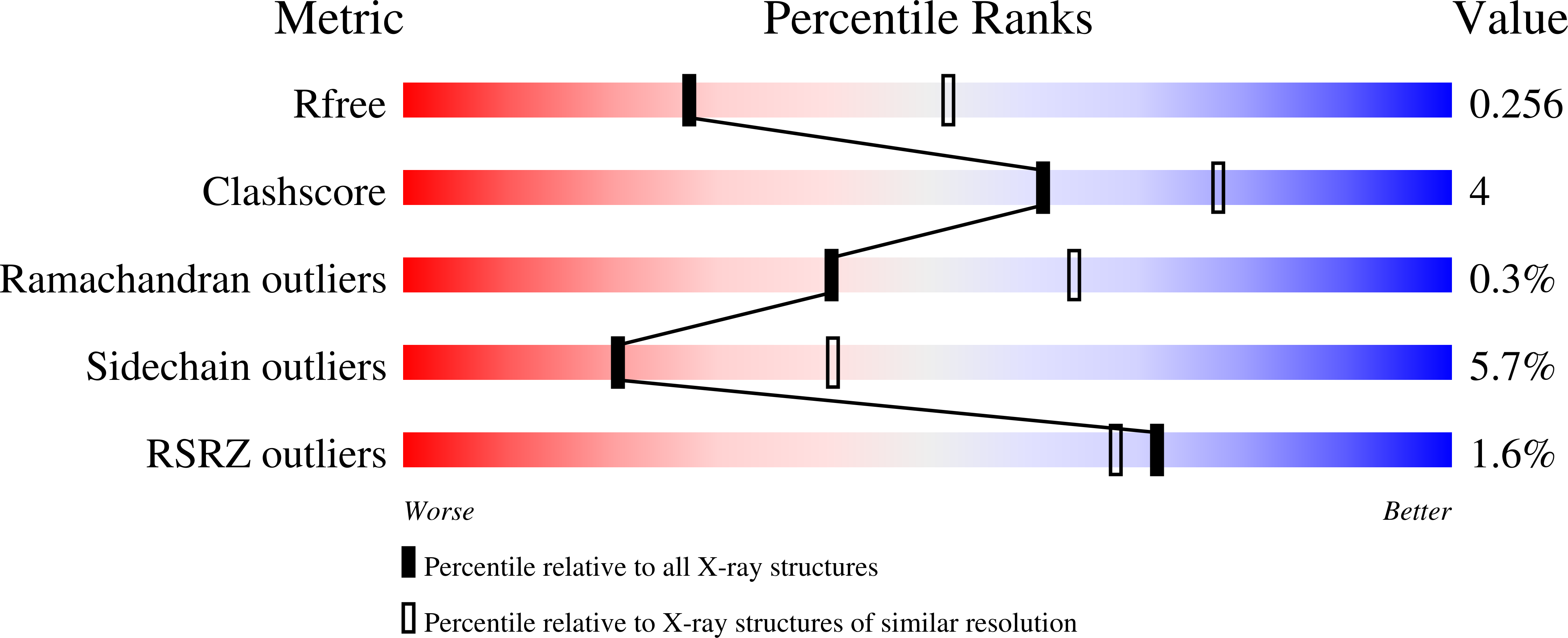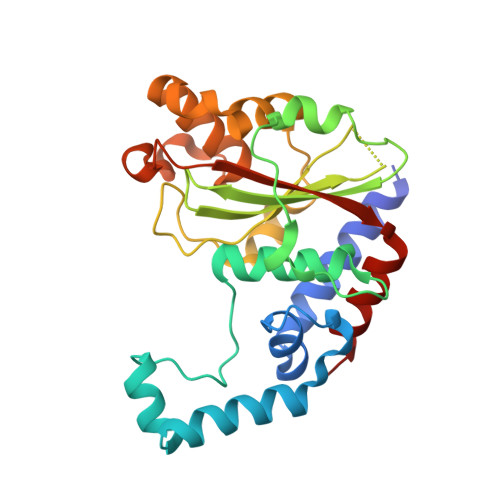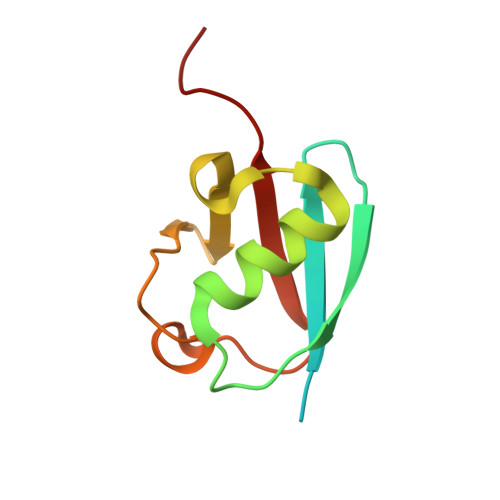Structural mechanism of ubiquitin and NEDD8 deamidation catalyzed by bacterial effectors that induce macrophage-specific apoptosis.
Yao, Q., Cui, J., Wang, J., Li, T., Wan, X., Luo, T., Gong, Y.N., Xu, Y., Huang, N., Shao, F.(2012) Proc Natl Acad Sci U S A 109: 20395-20400
- PubMed: 23175788
- DOI: https://doi.org/10.1073/pnas.1210831109
- Primary Citation of Related Structures:
4HCN, 4HCP - PubMed Abstract:
Targeting eukaryotic proteins for deamidation modification is increasingly appreciated as a general bacterial virulence mechanism. Here, we present an atomic view of how a bacterial deamidase effector, cycle-inhibiting factor homolog in Burkholderia pseudomallei (CHBP), recognizes its host targets, ubiquitin (Ub) and Ub-like neural precursor cell expressed, developmentally down-regulated 8 (NEDD8), and catalyzes site-specific deamidation. Crystal structures of CHBP-Ub/NEDD8 complexes show that Ub and NEDD8 are similarly cradled by a large cleft in CHBP with four contacting surfaces. The pattern of Ub/NEDD8 recognition by CHBP resembles that by the E1 activation enzyme, which critically involves the Lys-11 surface in Ub/NEDD8. Close examination of the papain-like catalytic center reveals structural determinants of CHBP being an obligate glutamine deamidase. Molecular-dynamics simulation identifies Gln-31/Glu-31 of Ub/NEDD8 as one key determinant of CHBP substrate preference for NEDD8. Inspired by the idea of using the unique bacterial activity as a tool, we further discover that CHBP-catalyzed NEDD8 deamidation triggers macrophage-specific apoptosis, which predicts a previously unknown macrophage-specific proapoptotic signal that is negatively regulated by neddylation-mediated protein ubiquitination/degradation.
Organizational Affiliation:
College of Biological Sciences, China Agricultural University, Beijing 100094, China.


















